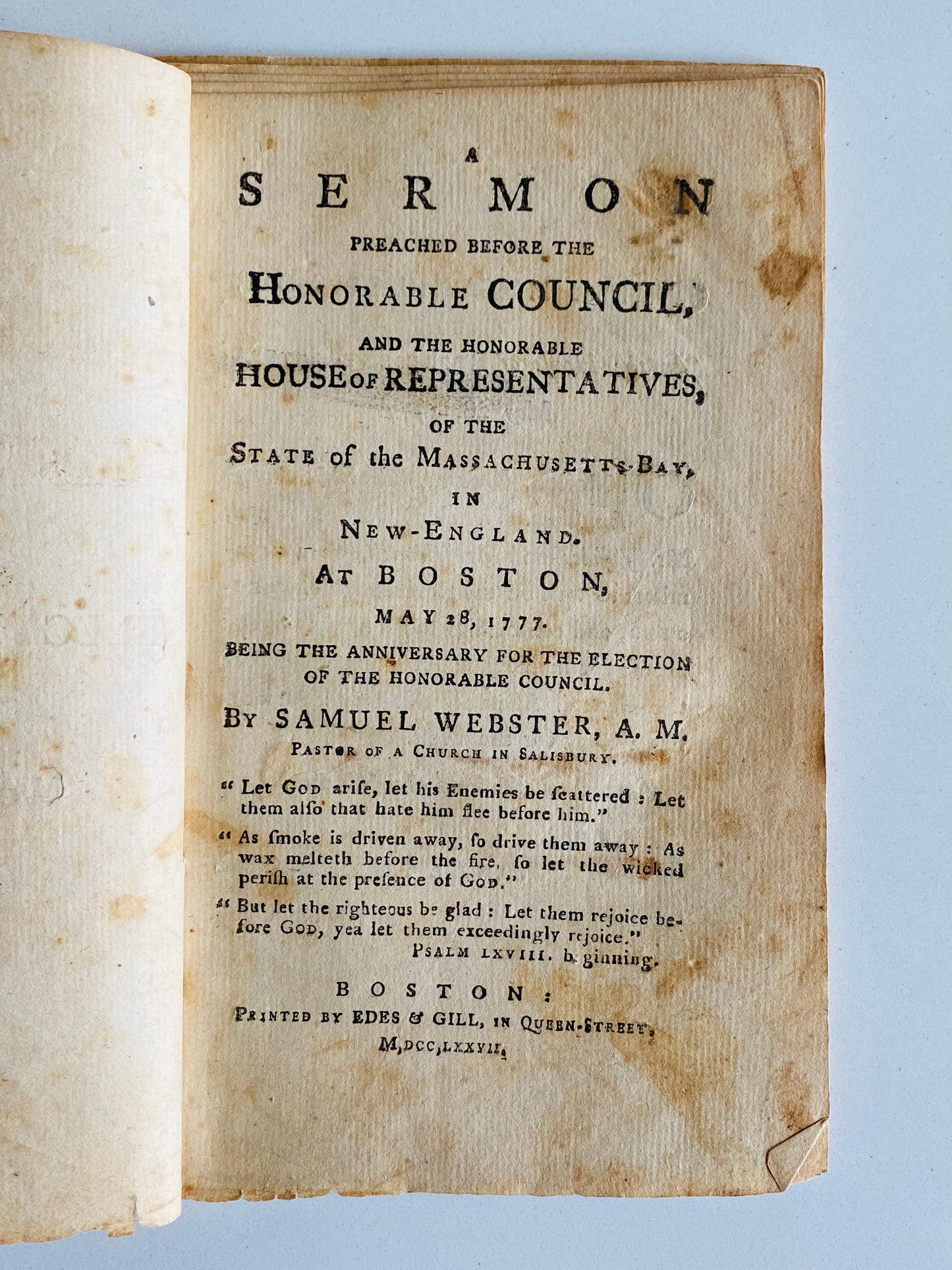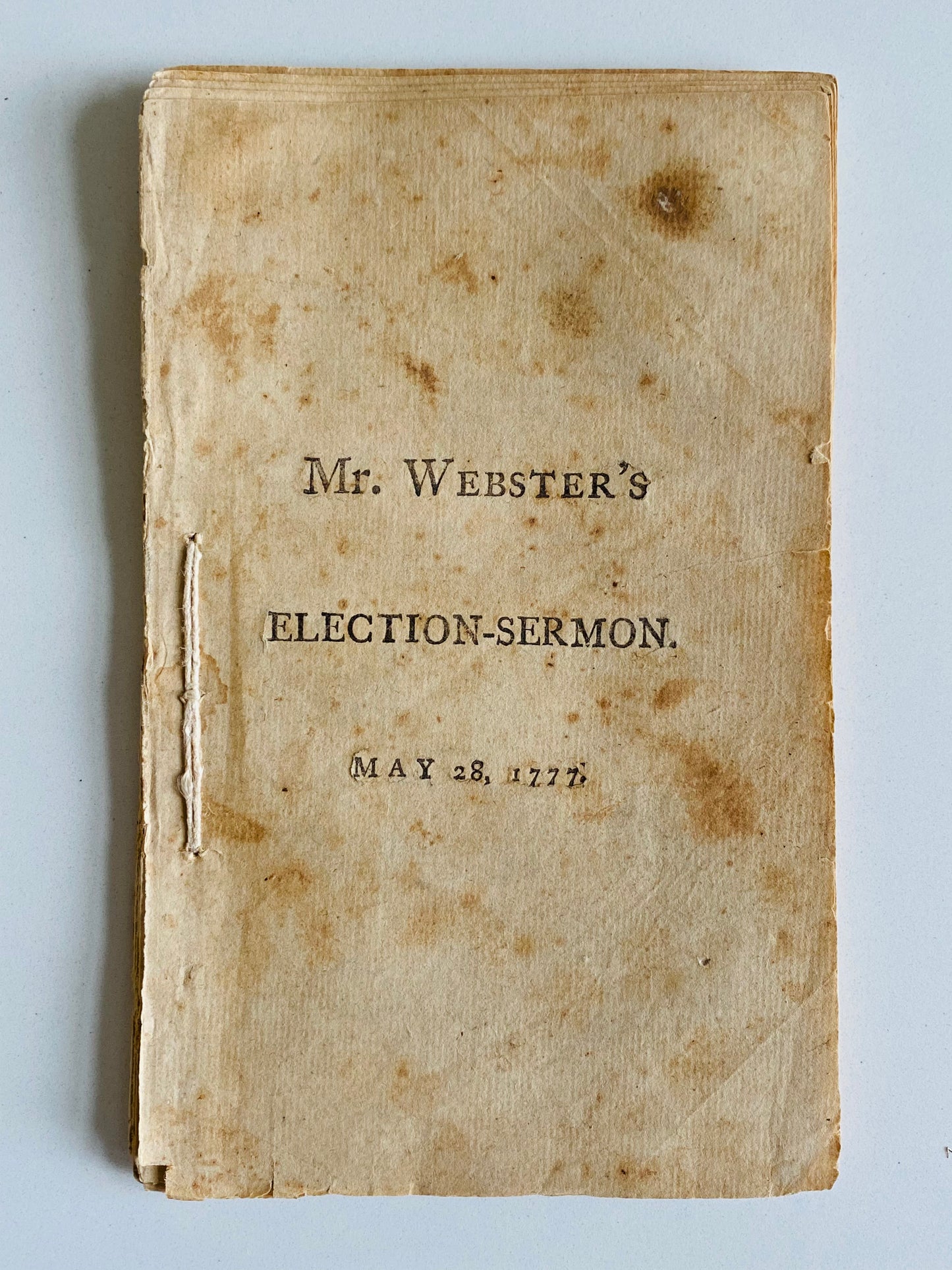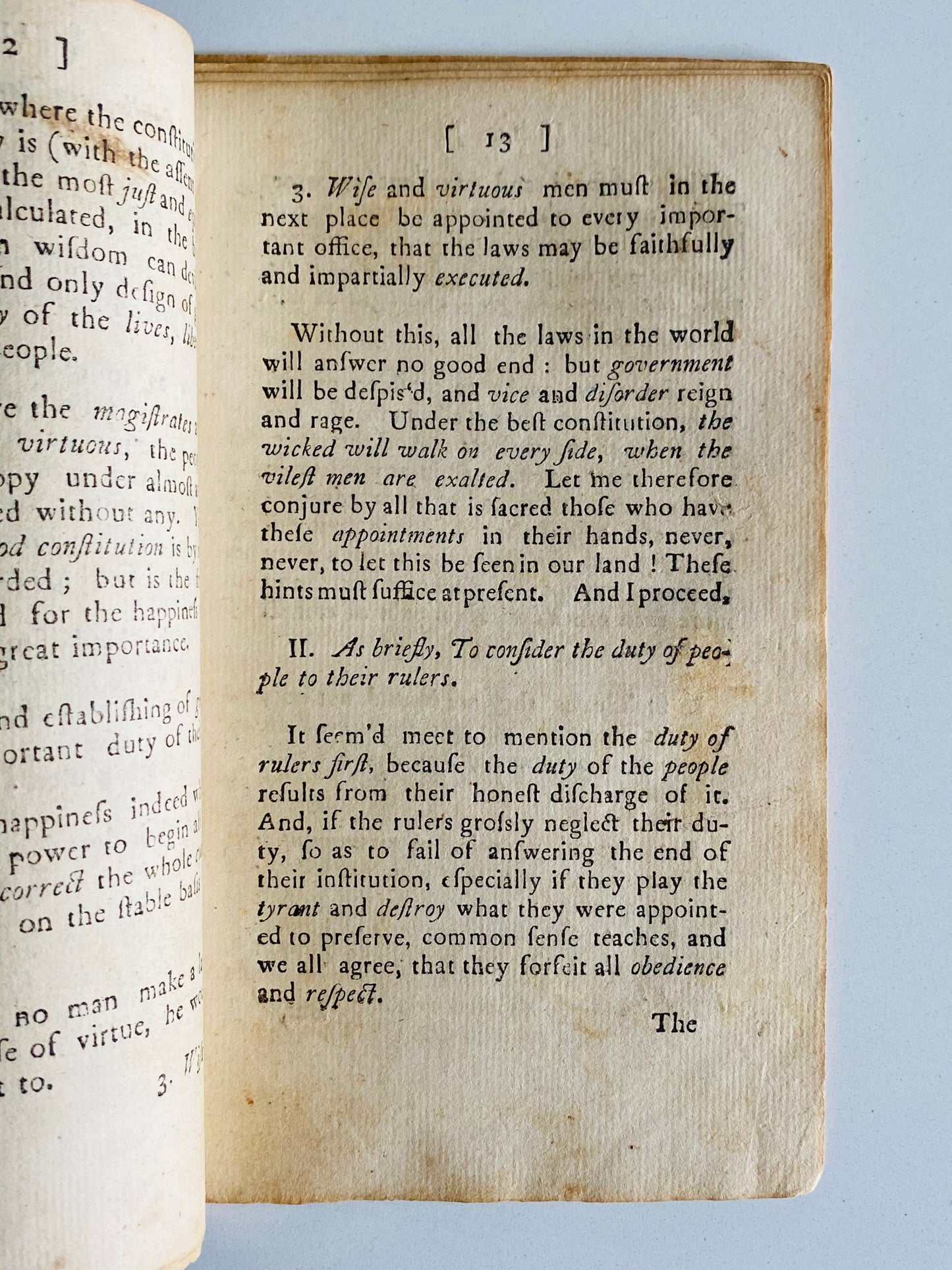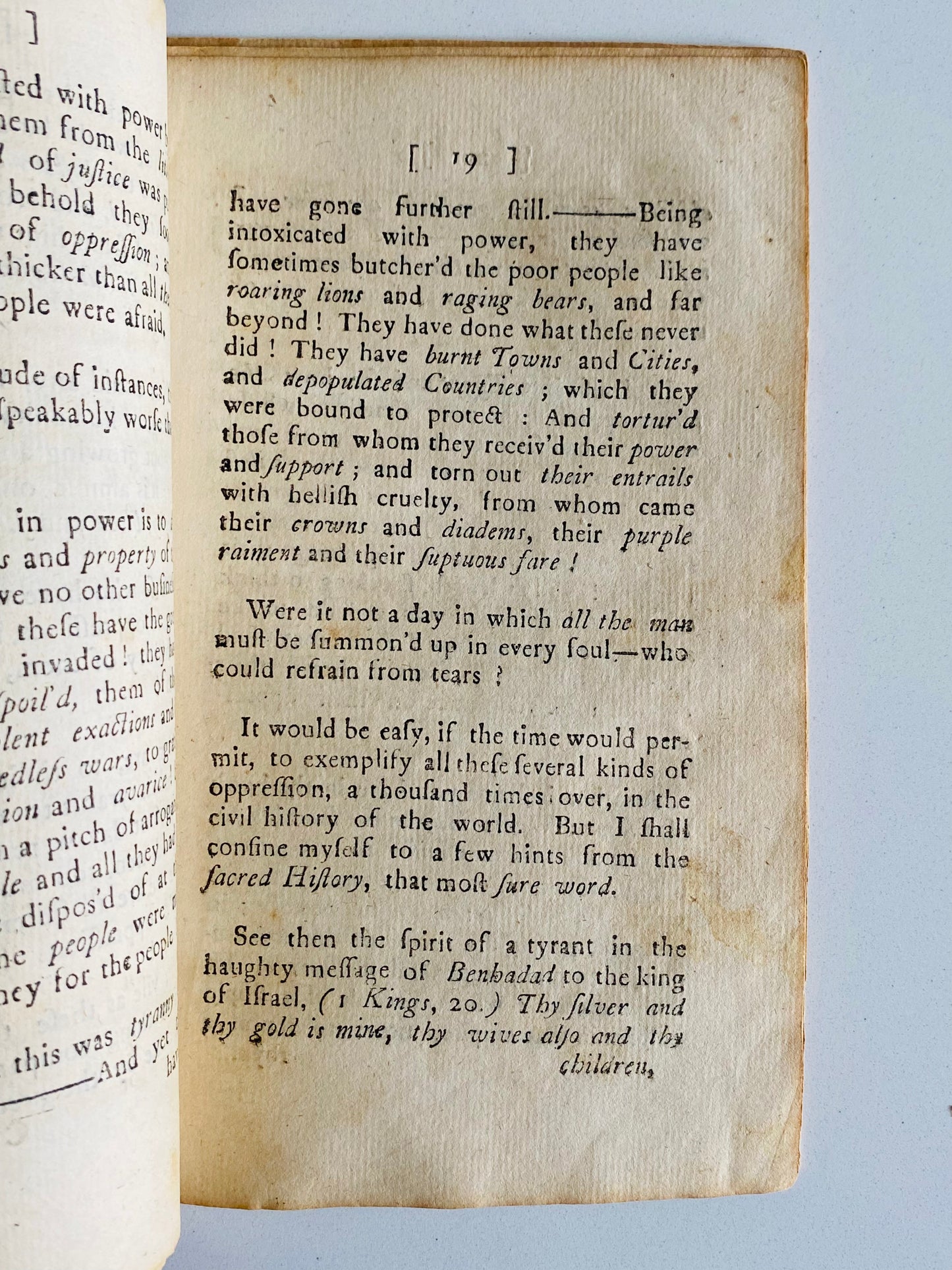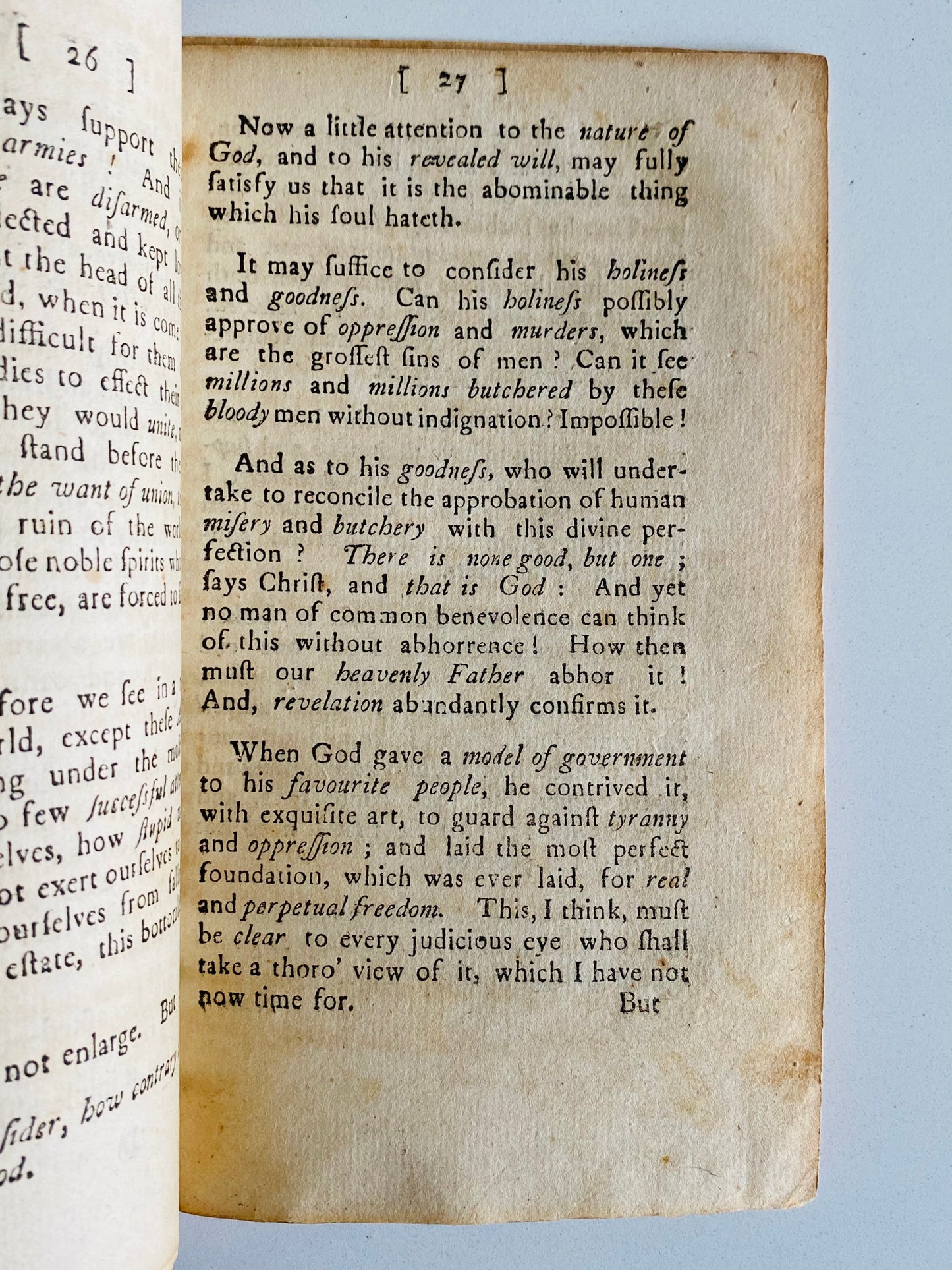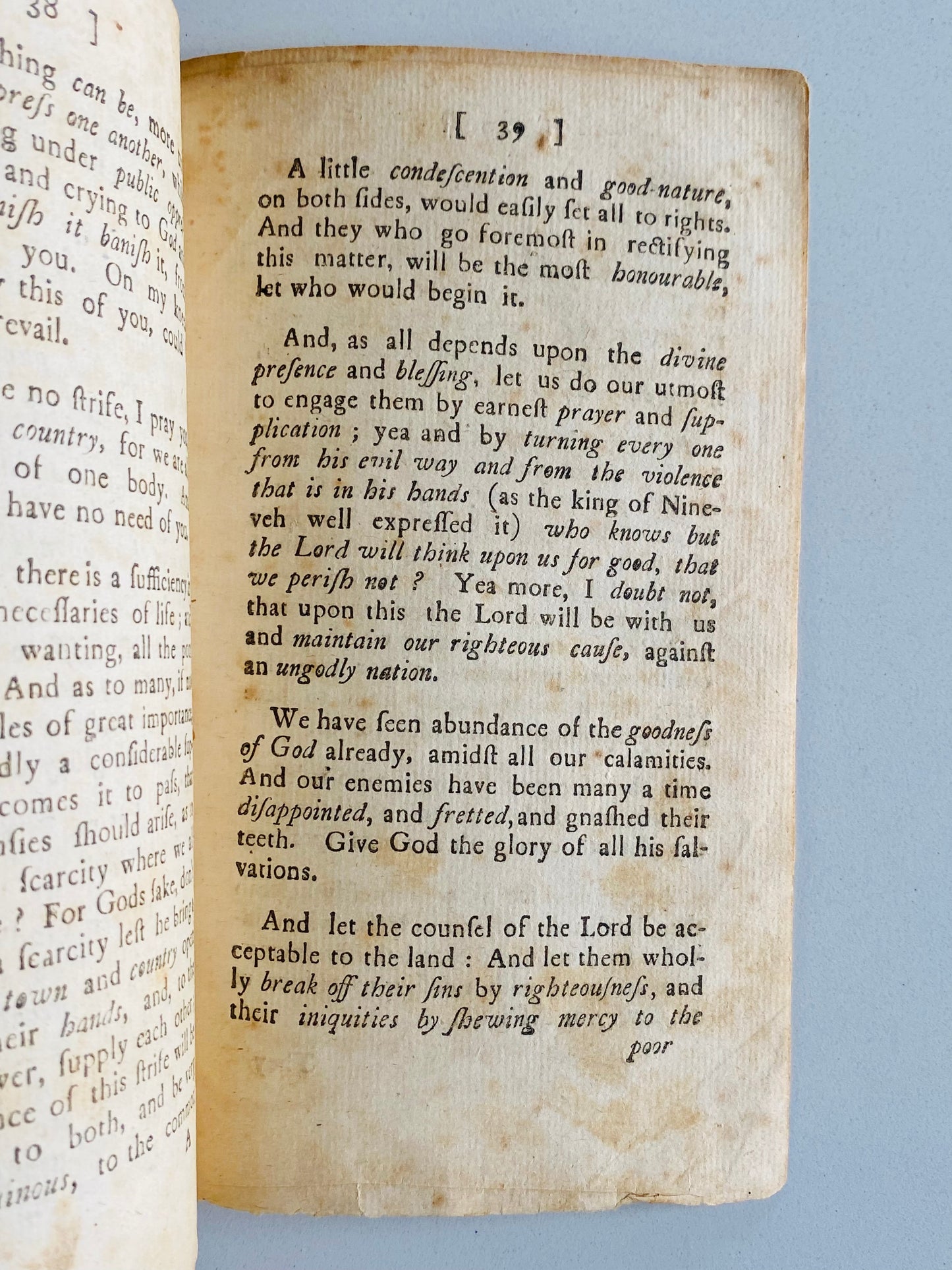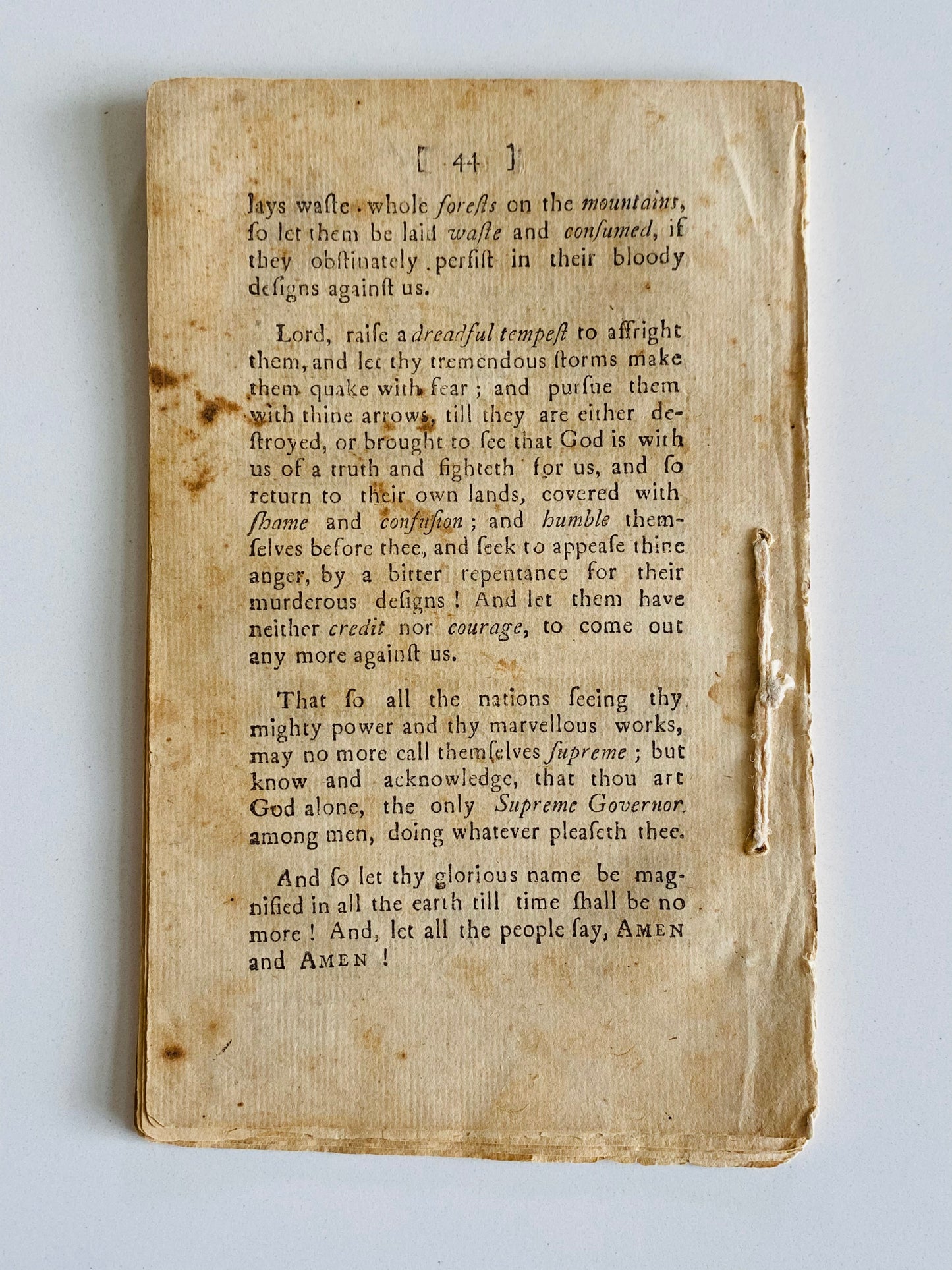Specs Fine Books
1777 SAMUEL WEBSTER. An American Revolutionary War Sermon Against Tyranny & Proposing Government Structures to Preserve Liberty
1777 SAMUEL WEBSTER. An American Revolutionary War Sermon Against Tyranny & Proposing Government Structures to Preserve Liberty
Couldn't load pickup availability
Exceptionally scarce with no copies on the market at any price in recent records; Samuel Webster, one of the hottest of the pro-American Revolution preaching firebrands, here not only lays blisters on the godlessness of British tyranny, but importantly suggests both the mechanisms tyrants use to preserve power and also a list of 10 governmental structures the United States should embody to prevent the loss of liberty every again.
Webster, Samuel. A Sermon Preached before the Honorable Council, and the Honorable House of Representatives, of the State of the Massachusetts Bay, in New-England. At Boston, May 28, 1777. Being the Anniversary for the Election of the Honorable Council. Boston. Edes & Gill. 1777. 44pp.
EXTRACTS:
"Tyrants always support themselves with standing armies! And if possible the people are disarmed, or before the militia neglected and kept low, and the chief ruler at the head of all the military force. And, when it is come to this, it is extremely difficult for them to unite in sufficient bodies to effect their deliverance. But, if they would united, nothing, nothing, could stand before them. So that in a word, the want of union, the want of union, is the ruin of the world. For want of this those noble spirits who would risk all to be free, are forced to sit down in chains!
When therefore we see in a manner the whole world, except these American States, groaning under the most abject slavery, with so few successful attempts to deliver themselves, how stupid must we be, if we do not exert ourselves to the utmost to save ourselves from falling into this remediless estate; this bottomless gulf of misery."
"But, depend on it, no government is God's ordinance, but that which is for the good of mankind: it would be the grossest reflection on the divine goodness to suppose it! Nay, I think but little short of blasphemy."
"The business of all in power is to defend the lives, liberties, and property of the people: And they have no other business: And yet every one of these have the great tyrants of the world invaded! They have not only robb'd and spoil'd them of their property by their violent extractions and by engaging them in needless wars to gratify their own lust, avarice, and ambition, but at length rose to such a pitch of arrogance as to claim the people and all they had as their property, to be dispos'd of at their pleasure, as if all the people were made for them and not they for the people!"
"No man denies but that originally all were equally free. Men did not purchase their freedom, nor was it the grant of kings, nor from charter, covenant, or compact, nor in any proper sense from man: but from God. They were born free.
But, behold, sin reign'd and disturb'd the peace of men: And then tyrants presently began to reign also: Like our cloathing they are the mark of lost innocence. . . "
To avoid avoid a repressive government in America:
"1. Let the people by all means encourage schools and colleges, and all the means of learning and knowledge, if they would guard against slavery. For a wise, a knowing and a learned people, are the least likely of any in the world to be enslaved.
2. Let them do all in their power to suppress vice and promote religion and virtue. For, besides their natural efficacy, I am persuaded no people were ever yet given up by God to slavery, till they had first given themselves up to wickedness.
3. Let only men of integrity be entrusted by you with any power. I think power is much safer in their hands than in men of greater abilities, but who are wanting in this essential point.
4. Let not too much power be trusted in the hands of any. It may hurt them, and then they may hurt the public. Or if it seem necessary in some critical time (like the present) to lodge great power in some hand or hands, let it be for a limited time, and the power renewed annually, if there is occasion.
5. Let elections of the Legislators be frequent; and let bribery and corruption be guarded against to the utmost. Methinks, those who are guilty of these should be forever rendered incapable of any place of power or trust; and this by a fundamental law of the constitution.
6. Let the militia be kept under the best regulation, and be made respectable. This will be a great security a great many ways.
7. Let standing armies be only for necessity and for a limited time. For, when corrupted, they have been the ruin of many a country's liberty.
8. Let these armies never be put under the absolute power of any magistrate in time of peace, so as to act in any cause, till that cause is approved by the senate and people.
9. Let monopolies, and all kinds and degrees of oppression be carefully guarded against. They are dangerous to the peace of a people, and they are dangerous to their liberties! I am mistaken if the present time does not prove it.
10. Let a careful watch be kept, and if any is found grossly and notoriously exceeding the limits of his power, methinks it should be a standing invariable rule never to trust him with any power more.
Finally, let the powers and prerogatives of the rulers and the rights and privileges of the people be determined with as much precision as possible, that all may know their limits. And where there is any dispute, let nothing be done till it is settled by the people, who are the fountain of power."
Complete as issued with blank title, title, and all text. No spine, side stitched. Textually good + with some light foxing and handling, one leaf with corner absent, but not impacting text.
Share
